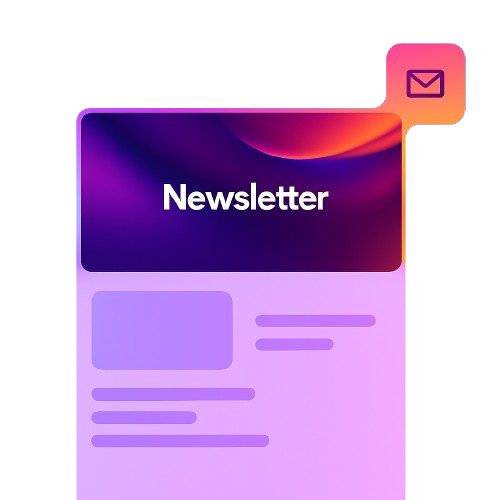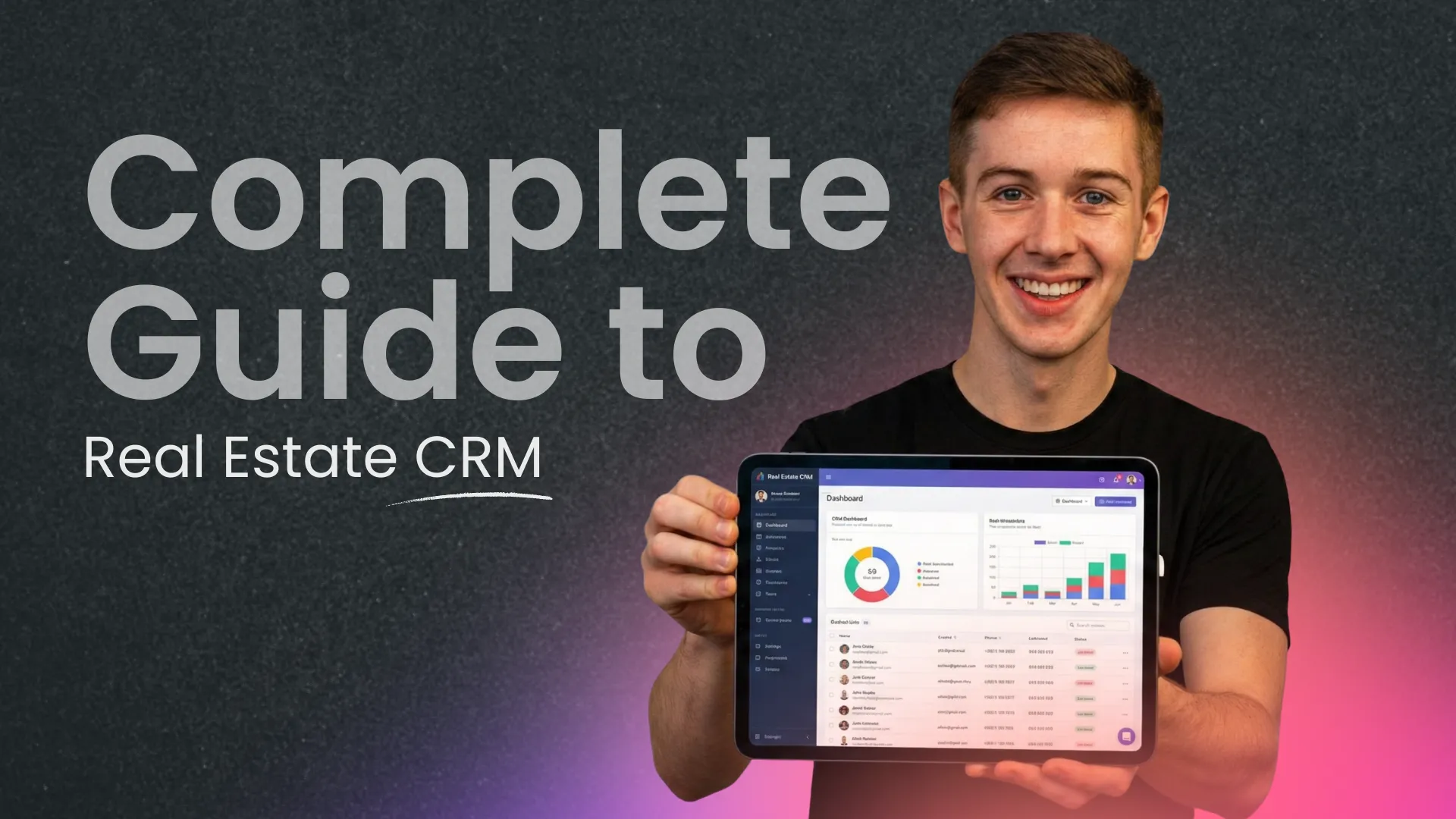AI is reshaping the way SaaS companies approach keyword research in 2025, moving beyond simple keyword volume to focus on search intent and user behavior. Leveraging AI tools enables businesses to analyze patterns, predict trends, and create more targeted content strategies that drive meaningful engagement. The most effective keyword research in 2025 blends AI-driven insights with an understanding of human intent to optimize visibility and conversions.
Traditional keyword strategies are no longer sufficient in an AI-powered landscape. SaaS companies are now using AI to automate research, uncover niche opportunities, and refine their SEO efforts, allowing them to stay competitive without excessive manual work. This shift emphasizes quality and relevance over quantity, helping businesses capture the right audience efficiently.
Launch Your App Today
Ready to launch? Skip the tech stress. Describe, Build, Launch in three simple steps.
BuildAI-powered platforms streamline everything from keyword discovery to content optimization, making full-funnel SEO strategies more accessible and actionable. This approach not only boosts organic traffic but also enhances user experience, which is critical for sustainable growth in SaaS markets.
Understanding AI and SaaS Keyword Research

AI-powered tools enable deeper insights into search behavior by analyzing vast data quickly. SaaS platforms provide scalable solutions to integrate these insights into ongoing SEO strategies. Together, they refine keyword discovery with precision and efficiency.
What Is AI-Powered Keyword Research?
AI-powered keyword research uses machine learning and natural language processing to analyze search patterns, user intent, and semantic relationships. This moves beyond simple keyword volume to focus on why users search and how they phrase queries.
These tools predict trends, suggest related terms, and identify new opportunities by processing real-time data from multiple sources. AI can automate repetitive tasks like clustering keywords or detecting content gaps, reducing manual effort and increasing accuracy.
Role of SaaS in Modern SEO Strategies
SaaS platforms deliver AI-driven keyword research tools as cloud-based services, making advanced analytics accessible without large infrastructure investments. Companies can subscribe to these platforms for continuous updates and scalable features.
SaaS tools often combine keyword research with content optimization, competitive analysis, and performance tracking. Their integration within one system helps SEO teams streamline workflows, adapt quickly to algorithm changes, and efficiently manage campaigns.
Benefits of AI-Driven Tools for Keyword Discovery
AI-driven tools improve keyword discovery by uncovering long-tail keywords and supporting search intent understanding. They analyze user psychology to tailor keyword strategy toward conversion potential rather than only search volume.
These tools increase efficiency by automating competitive intelligence and gap analysis. They also support voice search optimization and predictive SEO by anticipating evolving search behaviors. This leads to more targeted, actionable insights for SaaS businesses competing in saturated markets.
Emerging Trends in AI and SaaS Keyword Research for 2025
Keyword research in 2025 is driven by advances in AI, which enhance precision, efficiency, and insight generation. Key developments include automated processes that reduce manual effort, improved understanding of user intent through language models, and data-backed forecasting to anticipate search demand changes.
Automation of Keyword Analysis
Automation now handles vast datasets quickly, significantly cutting the time needed for keyword discovery and prioritization. AI-powered tools scan search engines, competitor sites, and user behavior to identify high-potential keywords without manual input.
This automation includes features like grouping keywords by theme, analyzing competitiveness, and suggesting content gaps. SaaS platforms integrate these capabilities to provide real-time keyword insights, freeing marketers to focus on strategy and creative tasks.
Automation simplifies monitoring keyword trends consistently, allowing faster reaction to shifts in user interests, which is critical in fast-moving markets.
Integrating Natural Language Processing
Natural Language Processing (NLP) deepens keyword research by interpreting the intent and context behind search queries. It moves beyond exact match keywords to understand synonyms, question formats, and conversational phrases common in voice and AI-based searches.
With NLP, keyword tools can analyze user questions, anticipate follow-up searches, and identify long-tail keywords that align closely with user intent. This results in more relevant keyword suggestions and content strategies targeting natural speech patterns.
NLP also supports multilingual keyword research, enabling SaaS platforms to tailor strategies for global markets, reflecting changes in language usage and local search behavior.
Predictive Analytics in Search Volume Trends
Predictive analytics uses historical search data combined with external factors like seasonality, market events, and emerging topics to forecast future keyword performance. This helps marketers allocate resources more efficiently by focusing on trending or rising keywords.
AI models detect subtle patterns in search volume fluctuations, alerting users to opportunities before they become saturated. In SaaS tools, predictive features include dashboards displaying forecasted traffic and competitive landscape shifts.
This forward-looking approach minimizes risk and optimizes content planning by anticipating demand changes rather than reacting to outdated data.
Key Platforms and Tools for 2025
AI and SaaS keyword research tools in 2025 blend advanced data analytics with user-friendly interfaces. These platforms optimize keyword discovery, competitor analysis, and content strategy through automation and AI integration.
Top AI-Powered SaaS Tools
Leading SaaS keyword research tools now incorporate AI to improve keyword relevance and bidding strategies. Platforms like Ahrefs, SEMrush, and SE Ranking provide robust keyword tracking, competitor insights, and trend analysis.
HubSpot’s AI Search Grader helps assess a brand’s footprint across AI-driven search environments. Other specialized tools focus on real-time data updates and predictive market behavior, useful in competitive industries like e-commerce or finance.
Cloud services such as AWS and GCP support these platforms by offering scalable AI infrastructure that enhances processing speed and data volume handling. Vercel’s deployment capabilities enable rapid interface updates and reliable performance for SaaS users.
Overview of imagine.bo Capabilities
Imagine.bo stands out as a versatile AI-powered SaaS tool designed specifically for keyword research. It integrates advanced natural language processing to synthesize keyword ideas from user queries and market trends.
The platform also supports automated content suggestions, improving SEO effectiveness by aligning with search intent. Its clean user interface and fast data retrieval contribute to an efficient workflow.
Built to scale on cloud platforms like GCP, Imagine.bo benefits from superior data security and processing power. This allows for seamless operations even with extensive datasets, which is critical for enterprise-level SaaS customers.
Selecting the Right Solution for Your Business
Choosing the correct keyword research tool depends on business size, industry, and budget. Small businesses might prioritize affordability and ease of use, favoring tools like HubSpot’s free AI graders.
Enterprises, meanwhile, require comprehensive data sets and integration options, making platforms hosted on AWS or GCP preferable due to their reliability and scalability.
Other factors include platform specialization—for example, imagine.bo suits content-heavy marketing, while other solutions might better handle paid search bid optimization. Understanding specific business needs and technical requirements will guide a more effective selection.
How imagine.bo Transforms Keyword Research and App Development
imagine.bo streamlines the process of turning keyword research insights into functional applications without coding. It offers automated planning tools and expert support to help users build scalable, professional-grade products efficiently and transparently.
Turning Ideas Into Apps Without Code
imagine.bo enables users to create web and mobile applications driven by detailed keyword research without writing a single line of code. This zero-code needed approach reduces technical barriers and accelerates development cycles for marketers and SaaS professionals.
Users can translate their keyword data and market requirements directly into app features using an intuitive interface. This process ensures that app design aligns tightly with SEO and user behavior insights, enhancing product-market fit from the start. The platform balances simplicity with professional-grade quality to deliver apps that meet industry standards.
Automated Blueprints and Feature Planning
The platform offers automated blueprints that interpret keyword research results into detailed app architecture and feature sets. These automated blueprints simplify planning by generating structured roadmaps based on semantic clustering and search intent analysis.
This feature promotes clear, focused development workflows and reduces guesswork in specifying functionality. imagine.bo highlights scalable infrastructure options to support growth, enabling users to plan future expansions without redesigning core components. This systematic approach improves accuracy in feature prioritization and resource allocation.
Production-Ready Deployment with Expert Support
imagine.bo includes comprehensive deployment tools paired with expert support to help users launch and maintain their applications professionally. The platform’s production-ready deployment ensures apps meet performance, security, and usability standards expected in competitive SaaS markets.
Users benefit from ongoing expert assistance, which covers technical troubleshooting, optimization, and platform updates. Transparent and clear pricing simplifies budgeting and avoids unexpected costs, making enterprise-level capabilities accessible to smaller teams and solo entrepreneurs.
Strategies for Maximizing AI-Generated Keyword Insights
AI-generated keyword data offers precision and scope that traditional methods cannot match. Applying these insights strategically allows marketers to improve content relevance, build authority through structured topics, and align with evolving search behaviors like semantic search.
Implementing AI Recommendations in Content Planning
AI tools analyze search data to identify not only high-volume keywords but also intent-driven queries. This enables marketers to prioritize keywords that align with specific user needs and stages in the buying cycle.
They should integrate AI keyword suggestions early in the content planning process to target conversational and long-tail queries. This reduces guesswork and ensures content matches what real users seek.
Continuous monitoring of AI-generated keyword performance is essential. Marketers must adjust content topics based on trends, emerging search terms, and competition gaps flagged by AI to maintain relevancy and improve organic traffic.
Creating Data-Driven Topic Clusters
Topic clusters organize related keywords into groups that support comprehensive content ecosystems. AI aids in discovering semantic relationships between keywords, which helps structure clusters effectively.
Using clusters helps build topical authority, signaling to search engines that content covers a subject deeply. This can improve rankings for multiple related queries rather than isolated keywords.
Marketers should map AI-identified keyword groups into pillar pages and supporting content. This approach optimizes internal linking and user navigation, increasing engagement and boosting overall SEO performance.
Optimizing for Semantic Search
Semantic search focuses on understanding user intent and contextual meaning rather than isolated keyword matching. AI excels at identifying these nuances by analyzing natural language patterns and query intent.
Optimization requires content that answers multiple related questions, uses synonyms, and includes structured data to enhance snippet eligibility. AI tools provide insights into conversational language trends essential for voice and mobile search.
Aligning content with semantic search helps capture traffic from complex queries and voice assistants. Marketers should use AI to identify and incorporate intent-driven keywords that traditional keyword research might overlook.
SaaS Keyword Research for Agencies and Solo Makers
Agencies and solo makers must focus on precise, actionable keyword strategies that fit their specific workflows and client demands. Efficient project handling and targeted tool usage are critical to managing varied SaaS needs while preparing for new launches and scaling.
Tailoring SaaS Tools for MVP Launches
Solo makers and founders launching an MVP need keyword research tools that provide quick, relevant insights without excess complexity. Prioritizing long-tail keywords aligned to niche needs helps attract early, committed users rather than broad, competitive terms.
Selecting SaaS platforms with filters for keyword intent and search volume relevant to MVP scope is key. These tools should also integrate easily with content management and analytics systems, allowing rapid adaptation based on performance data.
Focusing on keywords that identify pain points or emerging trends ensures the MVP addresses real market demand. Founders benefit from keyword ideas linked directly to features or user benefits to enhance SEO relevance.
Managing Multiple Projects Efficiently
Agencies handling several SaaS clients require keyword research methods that balance commonalities and unique needs. Using centralized dashboards that allow swift switching between projects saves time while preserving data accuracy.
Segmenting keywords by client, product stage, and target audience helps maintain clarity. Agencies often use automation to monitor keyword rankings and competitor moves, enabling fast adjustments across portfolios.
Batch processing keyword research and organizing results in structured spreadsheets or databases improve collaboration among team members. Clear tagging for intent type—informational, transactional, navigational—guides content strategies tailored to each client’s goals.
Scaling Solutions for Client Work
When agencies scale SaaS keyword strategies, they focus on expanding keyword sets while maintaining quality and relevance. Advanced tools with AI-driven suggestions enable discovering related terms and long-tail variations efficiently.
Scaling involves layered keyword prioritization, starting with core branded phrases, then extending to industry-specific and solution-based keywords. This method ensures consistent growth without diluting SEO effectiveness.
For solo makers scaling client work, reusable templates and automated reporting streamline keyword updates and insights sharing. Agencies invest in ongoing competitor keyword tracking to anticipate market shifts and optimize clients’ positions continuously.
Evaluating Security and Compliance for SaaS Keyword Tools
Selecting SaaS keyword research tools requires careful analysis of their security frameworks and compliance with data regulations. Strong security measures, regulatory adherence, and data privacy in AI-powered platforms must be assessed to ensure safe and reliable keyword management.
Built-In Security Standards for 2025
Modern SaaS keyword tools integrate advanced security protocols by default. These commonly include multi-factor authentication (MFA), encrypted data storage, and continuous monitoring for unusual activity. Tools implement role-based access control (RBAC) to limit permissions and reduce exposure risks.
Security gaps often arise from inadequate visibility and misconfigurations. A unified security approach that ensures real-time integrity checks is critical. Providers typically offer regular security audits and support compliance certifications, emphasizing protection against evolving threats, including AI-driven vulnerabilities.
Understanding GDPR and SOC2 in SaaS
GDPR compliance demands transparency in data processing, strict user consent, and the right to data erasure. SaaS tools handling EU citizen data must provide clear data policies, quick breach reporting, and mechanisms to access or delete personal data on request.
SOC2 focuses on security principles such as confidentiality, availability, and privacy. A SaaS vendor with SOC2 certification demonstrates adherence to these standards through ongoing internal audits and controls. For keyword tools, SOC2 assures customers that service integrity and data protection procedures meet industry benchmarks.
Ensuring Data Privacy in AI-Driven Platforms
Keyword tools using AI must prioritize data privacy by limiting data retention and anonymizing personal information where possible. Since direct penetration testing can be restricted on such platforms, evaluating vendor transparency and security testing practices is essential.
AI models integrated into SaaS can introduce risks like identity sprawl and unauthorized data access. Security controls should include continuous monitoring, stringent identity governance, and compliance with AI-specific security frameworks to mitigate these challenges effectively.
Getting Started With AI and SaaS Keyword Research in 2025
Entering the AI-powered keyword research landscape requires strategic steps to leverage new tools effectively. Early engagement with emerging platforms and understanding onboarding processes can streamline adoption. Practical tips help maximize initial use and avoid common pitfalls.
Joining Beta Programs and Waitlists
Participating in private beta programs offers early access to AI-driven SaaS keyword research tools. These programs often provide features not yet available publicly, giving users a competitive advantage in testing predictive algorithms or advanced search pattern detection.
Waitlists are common for new platforms with limited capacity during rollout. Signing up early ensures priority access and sometimes discounted or locked-in pricing options. It also allows users to give feedback during development, tailoring tools to real-world needs.
Choosing a tool in beta should involve reviewing clear pricing plans projected post-launch. Transparency about costs helps avoid surprises once the product becomes fully available.
Onboarding Process for New Platforms
Onboarding typically begins with account setup and data integration, such as importing existing keyword lists or connecting to analytics. Many platforms provide guided walkthroughs or tutorials specific to SaaS SEO needs, focusing on intent-driven keyword segmentation and competitor analysis.
Users should pay attention to platform customization options, including keyword forecasting parameters and geo-targeting settings. Effective onboarding includes training on interpreting AI-suggested keywords versus traditional metrics.
Integration with other marketing tools is often part of the process, enhancing workflow between keyword research and content management or paid campaigns.
Tips for Early Adoption Success
Early adopters should build familiarity through small pilot projects before scaling usage. Testing AI keyword suggestions against actual search trends validates tool effectiveness and helps adjust strategies in real time.
They should monitor ongoing pricing changes, especially if the platform is in transition from beta to general release. Transparency around clear pricing allows for better budget planning.
Engaging with community forums or support teams provides insight into best practices and emerging features. Early adopters benefit from sharing feedback, which often leads to improved functionality attuned to SaaS SEO challenges.
Future Outlook: The Evolving Landscape of AI and SaaS for SEO
AI continues to reshape how SaaS companies conduct keyword research and SEO. New technologies will drive innovation, but they also raise challenges around data ethics and strategic alignment. Businesses must adapt to stay competitive while responsibly leveraging AI.
Anticipated Innovations
AI will increasingly integrate predictive analytics to identify emerging keyword trends faster and with greater accuracy. This will allow SaaS marketers to target high-value, low-competition terms earlier in the buying cycle.
Natural language processing (NLP) advancements will refine intent detection, enabling content strategies that align closely with user questions and pain points. AI tools will automate content optimization more deeply, adjusting to evolving search algorithms in real time.
New SaaS platforms will likely provide domain-specific AI-powered keyword suggestions, improving efficiency for niche markets. These innovations will help reduce customer acquisition costs (CAC) by focusing efforts where intent and conversion potential align best.
Challenges and Ethical Considerations
Relying heavily on AI raises concerns about data privacy and transparency. SaaS firms must ensure AI tools comply with regulations, avoiding misuse of user search behavior or biased training data.
Over-optimization driven by AI can lead to content that sacrifices quality or authenticity, diminishing user trust. Maintaining human oversight in keyword research and content creation will be critical to balance AI efficiency with meaningful engagement.
Additionally, as AI reshapes search rankings, businesses face increased competition to maintain visibility. Addressing these challenges requires clear policies on data use and continuous evaluation of AI-driven SEO outcomes.
Aligning Business Goals With AI Advancements
Successful SEO strategies will connect AI capabilities directly to measurable business objectives such as lead quality, conversion rate, and lifetime customer value. SaaS organizations must prioritize AI tools that provide actionable insights aligning with growth targets.
Cross-functional collaboration between marketing, sales, and data teams will maximize the impact of AI-powered keyword research. Establishing clear KPIs for AI integration will help ensure investments translate into improved organic traffic and lower CAC.
The strategic use of AI requires ongoing adaptation. SaaS businesses that align AI advancements with their evolving business models and customer needs will build stronger, sustained SEO performance.
Launch Your App Today
Ready to launch? Skip the tech stress. Describe, Build, Launch in three simple steps.
Build





